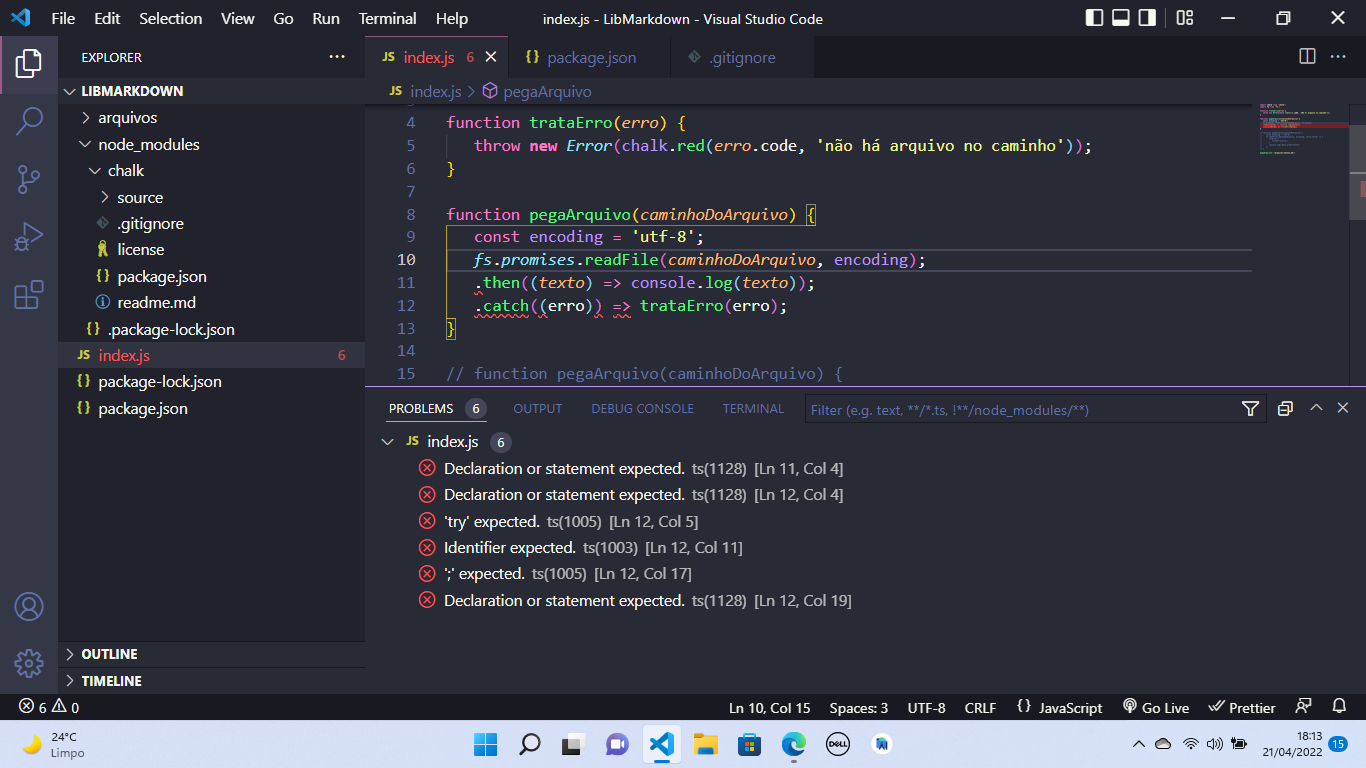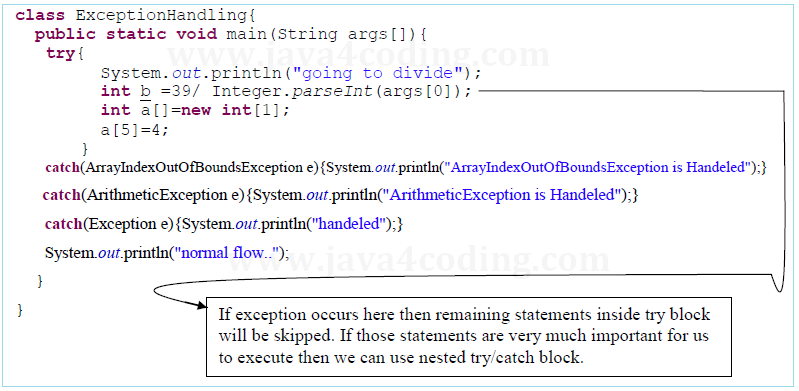

NODEJS TRY CATCH CODE
Of course, this is just one line of reasoning, and I generally see a lot of intentional throw clauses (meant to use with try/catc) in Node code written by Java converts. bugs), and other patterns for errors you expect. Generally you'd only use try/catch if you expect programmer errors (ie.

Logic/business errors in Node are usually handled with error-first callback patterns (or Promises, or similar). It means that you should try to avoid try/catch in hot code paths. This is almost line for line what they used in their documentation. Why is that ytdl is a node module called ytdl-core. You're not sure if the user/password are set, and you're not sure if the crypto library might fail, so you wrap it.īut try/catch also creates a new execution context, copies over scopes and all, and this is a costly operation, in terms of CPU time. This class method works on linux but does not work on windows. The nearest catch that JavaScript finds is where the thrown exception emerges. This chain is called the call stack (don’t worry we’ll get to the call stack soon). LibraryLib.encrypt(notSureIfThisIsAValidParam) With the program halted, JavaScript will begin to trace the daisy chain of functions that were called in order to reach a catch statement. The try statement allows you to define a block of code to be tested for errors while it is being executed. Another thing to be careful about with try. Let's take a look at how that might work in practice with our earlier toString () example. If you do want to work with try.catch in conjunction with asynchronous code, when running Node 7.4 or higher you can use async/await natively to write your asynchronous functions. As its name suggests, a try-catch block lets you run a piece of code, and if an error is thrown, halts the program and lets you recover. Try/catch is ok to catch a programming error or buggy code, for example from libraries you don't know might be buggy. To prevent this, Node.js has a special syntax called the try-catch block. But if any of the promises above rejects (a network problem or invalid json or whatever), then it would catch it. For example: app.If your encryption/decryption calls are synchronous (depends on the library, module, function you use), try/catch is ok to use it, otherwise depending on how you've used it, it might be useless. If synchronous code throws an error, then Express willĬatch and process it. If the error is not handled in any way, the program terminates abruptly, which is not a good thing to happen. When a piece of code is expected to throw an error and is surrounded with try, any exceptions thrown in the piece of code could be addressed in catch block. In its simplest form, a static file server will listen for requests and try to match the requested URL to a file on the local filesystem. Node.js Try Catch is an Error Handling mechanism.

It’s important to ensure that Express catches all errors that occur whileĮrrors that occur in synchronous code inside route handlers and middleware JavaScript, Node, Server A simple static file server One of the simplest beginner backend projects you can create is a static file server. Handler so you don’t need to write your own to get started. Occur both synchronously and asynchronously. The code in the finally block will always be executed before control flow exits the entire construct. The code in the try block is executed first, and if it throws an exception, the code in the catch block will be executed. ), you might need to do completion.on ('data'. Also, the JavaScript engine provides you with an. node.js express sockets events openai-api Share Improve this question Follow edited 2 days ago asked Apr 29 at 19:15 Alexxino 41 6 Instead of ('data'. When a piece of code is expected to throw an error and is surrounded with try, any exceptions thrown in. If an error occurs in the try block, the JavaScript engine immediately executes the code in the catch block. Error Handling refers to how Express catches and processes errors that The try.catch statement is comprised of a try block and either a catch block, a finally block, or both. Node.js Try Catch is an Error Handling mechanism.


 0 kommentar(er)
0 kommentar(er)
